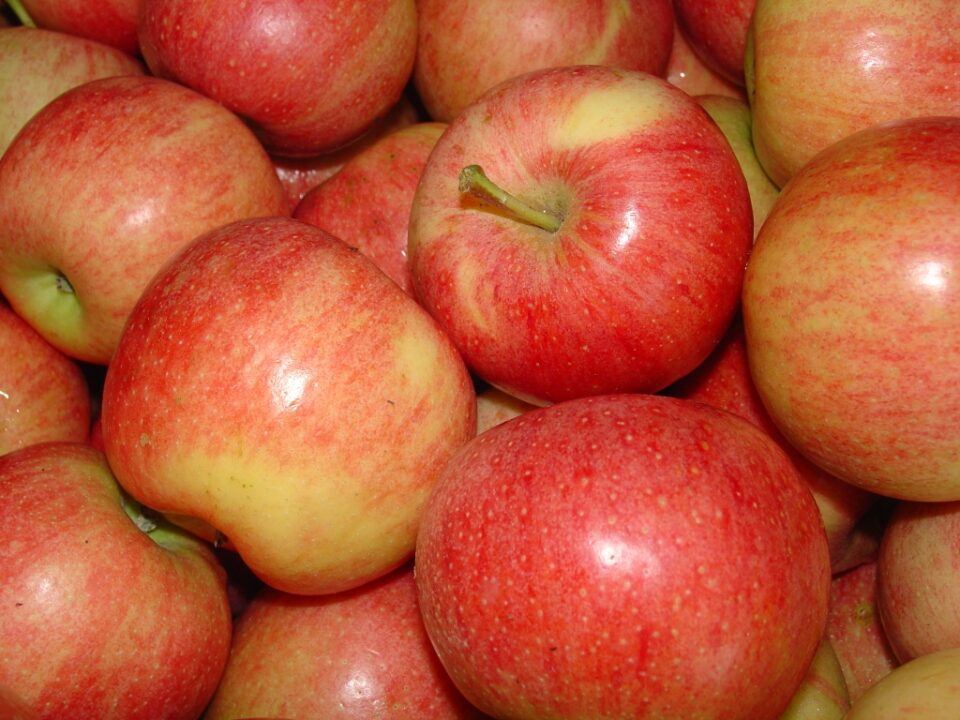Central Asian countries start harvesting and selling apples earlier than other countries in the region. In the southern regions of Tajikistan, even such autumn varieties as “Golden Delicious” ripen in late July and early August. However, the bulk of apples of autumn varieties is grown in regions with a milder climate, and now is the peak of storing apples, and therefore the best time to make preliminary conclusions about the harvest and its quality.
According to EastFruit analysts, the markets are currently oversaturated with apples of different varieties. There are a lot of them, but mainly low-quality apples are offered for sale that cannot be stored long. “Even in retail, the price is now below $0.40 per kg (about 4 TJS) – we have not seen such low apple prices in Tajikistan for a long time. Usually, the minimum prices for apples in the country are reached only in mid-October, when everything that can be stored has already been put in storage, and non-storable apples are sold at a bargain price. Therefore, we can only guess what the price of apples will be in a month,” says Bakhtiyor Abduvohidov, consultant to the Food and Agriculture Organization of the United Nations (FAO).
He also notes that all quality apples are stored at considerably higher prices. Moreover, the price for quality apples has not changed over the year – it remains standard from year to year and is about 5 TJS per kg ($0.44). However, a negative price trend is noted here, as well, since recently the price was 6 TJS ($0.53).
By the way, Tajik entrepreneurs that stored apples in the fall of 2020 and managed to keep them in storage until spring made a good profit. It is obvious – apples were purchased at 5-6 TJS, and sold in March at 13-14 TJS per kg. Those who saved apples until April earned even more by selling apples at 15-17 TJS per kg, depending on the quality.
However, this is not always the case. For instance, in 2019, prices for apples did not increase during storage at all – from January 1 to the end of April, the price remained at 5 TJS per kg and even dropped to 4 TJS at the end of the storage season. And since it is not growers themselves who store apples in the country, but mainly intermediaries, this business was unprofitable then. Last season the profitability of storage increased interest in building fruit storage facilities. Quite a lot of them were built for the new harvest, and of various sizes, which so far allows to keep the prices for high-quality apples from collapsing as the prices for non-storable apples did.
Our monitoring of wholesale prices confirms that prices for most apple varieties in Tajikistan are currently significantly lower than in previous years. At the same time, local market experts confirm the fact of a constant increase in the area of modern apple orchards. Despite the frustration with intensive farming experienced by many investors in the country, a number of farmers have already learned how to produce high yields of good-quality apples. According to Bakhtiyor Abduvokhidov, even in the early apple segment in 2021, there was a noticeable increase in the quality of Tajik apples. By the way, we talked in detail about the top 10 problems of intensive apple orchards in Central Asia a year ago. It seems that many have drawn conclusions from this.
Tajikistan, unlike neighboring Uzbekistan, has not suffered so much from the spring frost this year. Besides, there were no significant losses in the apple segment. At the same time, Tajikistan does not focus on the export of apples, while Uzbekistan exports quite a lot of early apple varieties.
The lack of apple exports can play a cruel trick on Tajik farmers, especially on those involved in apple storage. At the moment when the domestic apple market turns out to be saturated, as it happened in the 2018/19 season, apple prices will stabilize and there will be no earnings on storage, but only losses. That is why in most countries in the world, either the growers themselves or their cooperatives are engaged in apple storage. For example, in the US, wholesale prices for apples in April are usually 10-15% lower than when they were put in storage. Tajikistan may have the same situation quite soon.
In addition, it should noted that the supply of apples is growing in the world, and their trade is decreasing. Therefore, EastFruit analysts are drawing the world’s attention to the threat of apple overproduction in 2021 and record low prices by launching the hashtag #freshapplecrisis. This means that the prospects for earning money from storing apples in Tajikistan this season are not entirely clear.
The use of the site materials is free if there is a direct and open for search engines hyperlink to a specific publication of the East-Fruit.com website.




